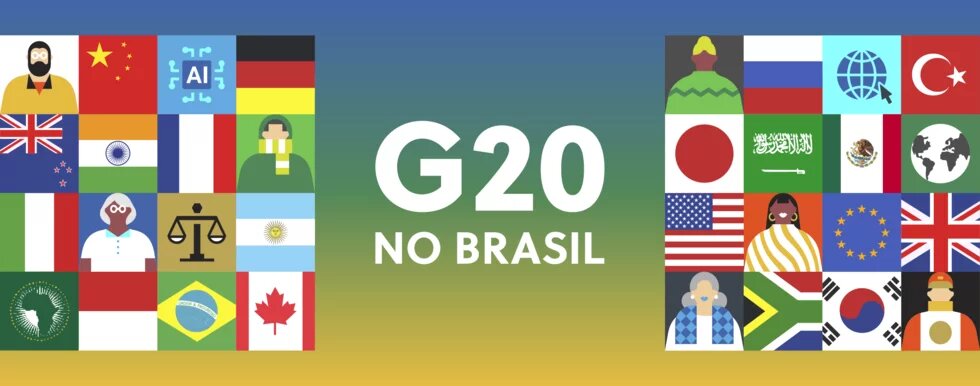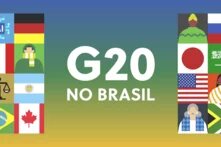
Our presence in almost all the member countries, with offices and support for various civil society organizations, puts us in a privileged position to accompany and monitor the debates and negotiations within this international space, observing how the themes of democracy, human rights, socio-environmental justice and just energy transition are being addressed.
Since 2008, with the financial crisis and the realization of a multipolar world, the countries of the Global North have lost credibility, requiring agreements with developing nations to deal with crises. Thus, the G20 has become an essential forum for discussing the biggest global economic challenges. Today, solutions to economic and financial problems require reducing inequalities and tackling the climate crisis.
Now, in 2024, with the G20 in Brazil, issues such as global representation, institutional reforms, climate crisis mitigation, debt relief for the Global South and rights in the digital world will be in the spotlight. All this in a year full of important elections around the world.
The Heinrich Böll Foundation's office in Brazil is especially following the Civil Society engagement groups, the C20 (Civil Society 20) and the T20 (Think Tanks 20) of organizations discussing digital rights.
Some of our partners are playing important roles in various working groups, co-creating recommendations that are now in the advocacy phase, where they present their ideas to governments to influence the official G20 negotiations.
The recommendations from the engagement groups are just the beginning. The advocacy phase, which began in the second half of the year, is crucial for influencing government negotiations.
Our driving purpose is to support our Brazilian civil society partners in turning these demands into concrete actions, making the G20 a more inclusive forum. The challenge is to turn words into actions and make the G20 a participatory space.
In this international arena, putting pressure on states so that the voices of civil society are really heard is fundamental. In addition, it is crucial that issues of social and environmental justice are at the heart of the summit's discussions.
Will the voices of non-governmental organizations resonate for the first time in the history of the G20 in such a complex global scenario? In our view, only with engaged and persistent participation can we ensure that policies reflect the needs of vulnerable populations.
The meeting of the heads of government and state of the 19 countries, the European Union and the African Union will take place in November 2024 in Rio de Janeiro. Until then, we invite you to follow the official debates and parallel events taking place in 13 Brazilian cities.
Regine Schönenberg, director at the Heinrich Böll Foundation in Brazil, and team.
